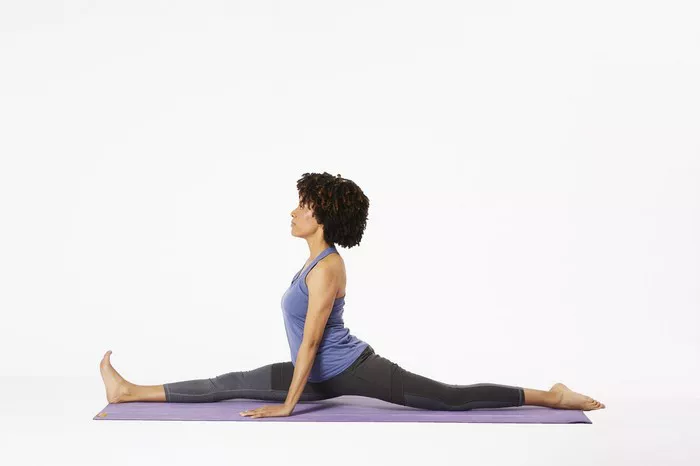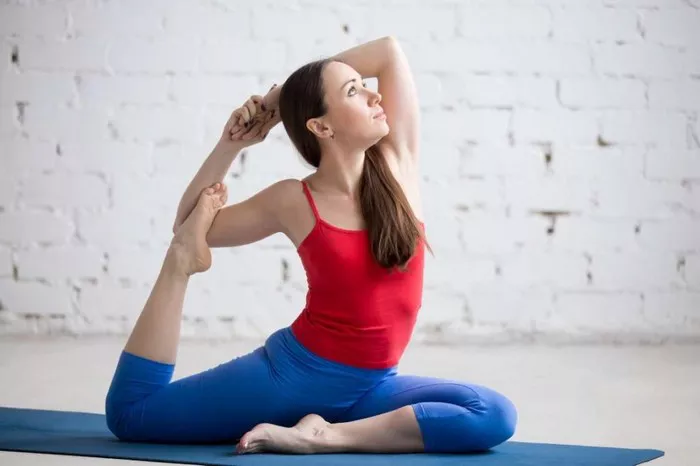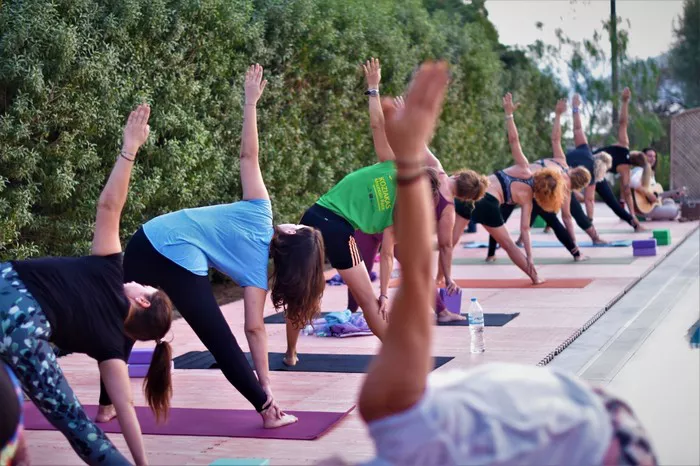Yoga is more than just a physical exercise. It is a practice that has been around for thousands of years and is known to benefit both the body and the mind. Whether you are a beginner or a seasoned practitioner, yoga offers a wide range of advantages that can improve your overall well-being.
In this comprehensive guide, we will explore the numerous benefits of yoga, including physical, mental, and emotional improvements. We will also address common misconceptions about yoga and provide insights into how to make the most of your practice.
Introduction to Yoga and Its Growing Popularity
Yoga has grown exponentially in popularity in recent years, with millions of people worldwide practicing it regularly. From bustling cities to remote villages, yoga has found a place in the lives of people from all walks of life. But what exactly makes yoga so special?
At its core, yoga is a practice that involves controlled movements, breathing techniques, and meditation. While it is often associated with flexibility and strength, yoga is much more than that. It encompasses a holistic approach to health that incorporates physical, mental, and spiritual well-being.
For many, yoga is a way to reduce stress, increase mindfulness, and improve overall health. For others, it is a path toward self-awareness and personal growth. Regardless of the reasons you choose to practice yoga, it is important to understand the wide-ranging benefits that this ancient practice can offer.
The Physical Benefits of Yoga
One of the most well-known advantages of yoga is its ability to improve physical health. Unlike other forms of exercise, yoga emphasizes long, controlled movements that help strengthen the body without causing strain. Here are some key physical benefits of yoga:
1. Improves Flexibility
Perhaps the most obvious benefit of yoga is the improvement of flexibility. Many yoga poses (known as asanas) target different muscle groups, stretching and elongating them. Over time, regular practice can help increase the flexibility of your muscles and joints, making it easier to perform everyday activities and reducing the risk of injury.
2. Strengthens Muscles
Yoga is often perceived as a gentle form of exercise, but it is also an excellent way to build strength. Many yoga poses require you to support your own body weight, which helps to tone and strengthen muscles. Poses like Plank, Downward Dog, and Warrior can increase muscle strength in the arms, legs, and core, contributing to improved posture and overall muscle tone.
3. Improves Posture
Poor posture can lead to a variety of health issues, including back pain, neck strain, and fatigue. Yoga emphasizes proper alignment and body awareness, which can improve posture over time. Certain poses, like Mountain Pose and Cat-Cow, help train your body to maintain better posture both during practice and throughout your daily life.
4. Increases Balance and Coordination
Balance is an essential component of yoga. Many poses challenge your ability to stay balanced, such as Tree Pose, Warrior III, and Half Moon. Practicing these poses regularly can help enhance coordination and balance, which is particularly beneficial as you age.
5. Boosts Circulation
Yoga also promotes better circulation by encouraging deeper and more efficient breathing. In many poses, your body is positioned in ways that encourage improved blood flow. Poses like Downward Dog, for example, help to bring blood to your head, giving you an energizing feeling. Additionally, certain breathing exercises (pranayama) help to increase oxygen supply to the body and remove toxins.
6. Enhances Respiratory Health
Yoga places a significant emphasis on breathing techniques. Learning to control your breath (pranayama) can help increase lung capacity, improve breathing efficiency, and reduce symptoms of conditions like asthma and allergies. Deep breathing practices also help to reduce stress and improve focus.
7. Relieves Chronic Pain
For those suffering from chronic pain, yoga can be a helpful practice. Research has shown that yoga can be effective in reducing pain caused by conditions like arthritis, back pain, and migraines. Through stretching, strengthening, and mindful movement, yoga can help alleviate discomfort and improve mobility.
The Mental and Emotional Benefits of Yoga
While yoga is often thought of as a physical practice, its benefits extend far beyond the body. Regular yoga practice can have a significant impact on your mental and emotional health. Here are some of the key ways yoga can improve your mental well-being:
1. Reduces Stress and Anxiety
One of the most powerful effects of yoga is its ability to reduce stress and anxiety. Yoga encourages mindfulness, which involves focusing your attention on the present moment rather than worrying about the past or future. Breathing exercises, such as alternate nostril breathing or deep abdominal breathing, activate the body’s relaxation response, helping to lower stress hormones like cortisol.
Research shows that regular yoga practice can reduce levels of anxiety and help you feel calmer, more grounded, and less overwhelmed by daily pressures.
2. Improves Mental Clarity and Focus
Yoga has a profound impact on mental clarity. The practice of focusing on your breath and body during yoga helps to quiet the mind, reducing mental chatter and distractions. This mindfulness improves your ability to concentrate and enhances cognitive function. Many practitioners report feeling more present, focused, and mentally sharp after a yoga session.
3. Promotes Emotional Stability
Yoga fosters emotional balance by helping practitioners connect with their inner selves. The act of slowing down, tuning in, and practicing self-compassion allows you to release negative emotions and cultivate a sense of inner peace. With consistent practice, you may find that you become more resilient to stressors and better equipped to handle life’s challenges with equanimity.
4. Improves Sleep Quality
Yoga can also help improve the quality of your sleep. Practices such as Yoga Nidra (a guided meditation) or gentle, restorative yoga poses before bedtime can help activate the parasympathetic nervous system, which promotes relaxation and prepares the body for restful sleep. Many people who struggle with insomnia or poor sleep patterns find that yoga helps them fall asleep faster and experience deeper sleep.
5. Boosts Self-Awareness and Mindfulness
Yoga encourages you to develop a deeper sense of self-awareness. By focusing on the present moment and becoming more attuned to your body and mind, yoga fosters mindfulness. This heightened awareness can lead to greater insight into your habits, emotions, and thought patterns, empowering you to make positive changes in your life.
6. Enhances Self-Compassion
The practice of yoga encourages a non-judgmental approach to yourself and your body. This means learning to accept your strengths and limitations without self-criticism. Over time, yoga helps cultivate self-compassion, which can improve your relationship with yourself and boost your overall emotional well-being.
Yoga for Specific Populations
Yoga is a practice that can be tailored to suit people of all ages and physical abilities. Here are a few examples of how yoga can benefit specific populations:
1. Yoga for Seniors
For older adults, yoga offers a gentle and low-impact way to stay active. Yoga can help improve flexibility, mobility, and balance, which are essential for preventing falls and maintaining independence. Additionally, yoga provides stress relief and promotes relaxation, which is especially beneficial for seniors dealing with age-related anxiety or insomnia.
2. Yoga for Athletes
Athletes can benefit from yoga in several ways. Yoga can help prevent injuries by improving flexibility and strengthening muscles. It can also enhance performance by increasing mental focus and helping athletes recover from intense physical activity. Many professional athletes incorporate yoga into their training regimen for these reasons.
3. Yoga for Mental Health Conditions
Yoga has been shown to be effective in supporting mental health conditions like depression, PTSD, and anxiety disorders. Through mindful movement and deep breathing, yoga helps regulate the nervous system, promoting relaxation and emotional balance. Many therapists now recommend yoga as part of a holistic treatment plan for mental health.
4. Yoga for Weight Management
While yoga may not be as intense as other forms of exercise, it can still help with weight management. Yoga increases mindfulness, which can lead to healthier eating habits. Additionally, certain styles of yoga, such as Vinyasa or Power Yoga, provide a good cardiovascular workout that can help burn calories and increase metabolism.
See Also: What Is the Best Yoga for Flexibility and Strength?
Common Misconceptions About Yoga
Despite its widespread popularity, there are still several misconceptions about yoga. Let’s address some of the most common myths:
1. Yoga is Only for Flexible People
One of the biggest misconceptions is that you need to be flexible to practice yoga. In reality, yoga is about improving flexibility, not being already flexible. Many people begin yoga with limited flexibility and gradually increase their range of motion over time.
2. Yoga is Just Stretching
While stretching is an important component of yoga, the practice goes far beyond that. Yoga involves a combination of stretching, strengthening, balancing, breathing, and meditation. It is a full-body workout that addresses both physical and mental health.
3. Yoga is a Religion
Yoga is not a religion, though it does have spiritual roots in Hinduism and Buddhism. Today, yoga is practiced by people of all religions and backgrounds. The spiritual aspects of yoga focus on mindfulness, self-awareness, and personal growth, rather than religious doctrine.
4. Yoga is Only for Women
Although yoga has historically been practiced by both men and women, it is often perceived as a feminine activity. In reality, yoga is for everyone, regardless of gender. Many male athletes, military personnel, and professionals practice yoga to improve their physical and mental well-being.
Conclusion
Yoga is a multifaceted practice that provides numerous benefits for the body, mind, and spirit. From improving flexibility and strength to reducing stress and anxiety, yoga is an excellent way to enhance your overall well-being. Whether you are looking for a physical workout, a way to relax, or a tool for personal growth, yoga has something to offer. With regular practice, you can experience the transformative effects that yoga can have on your life.
You Might Be Interested In:




















